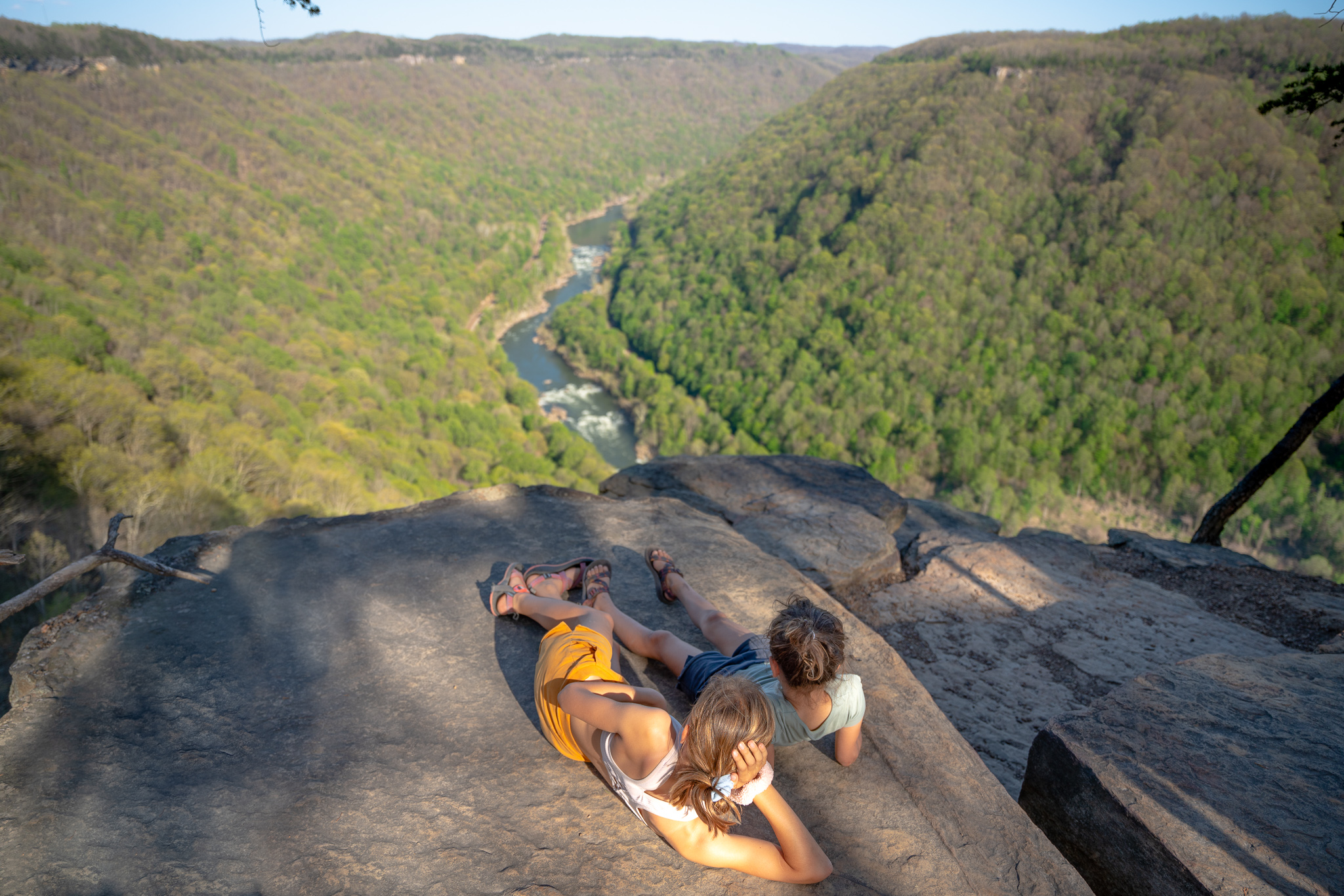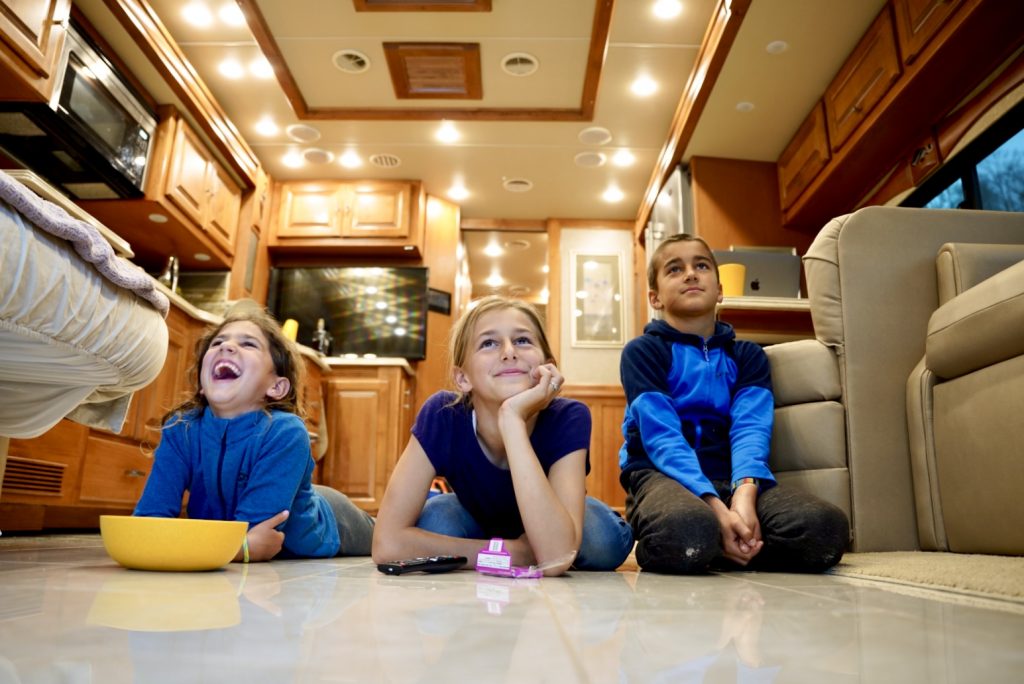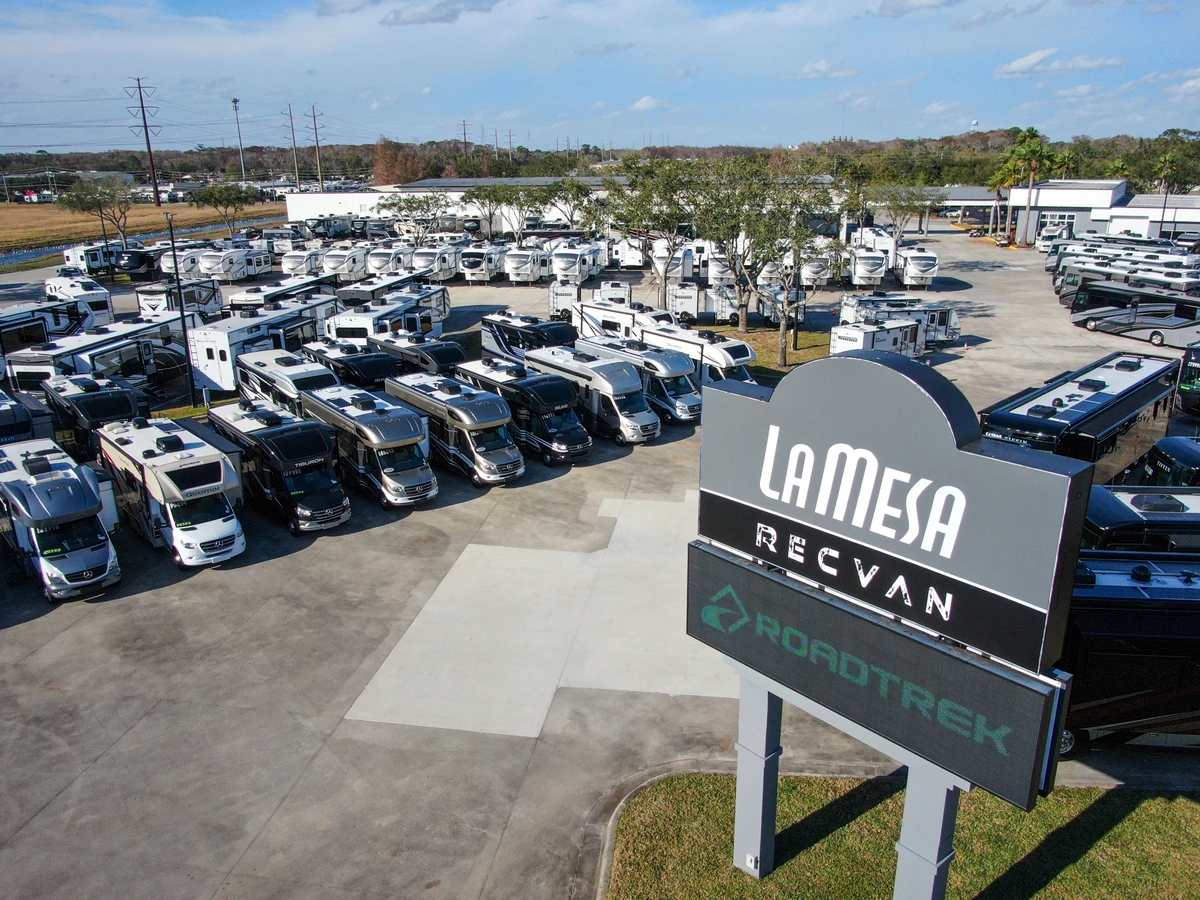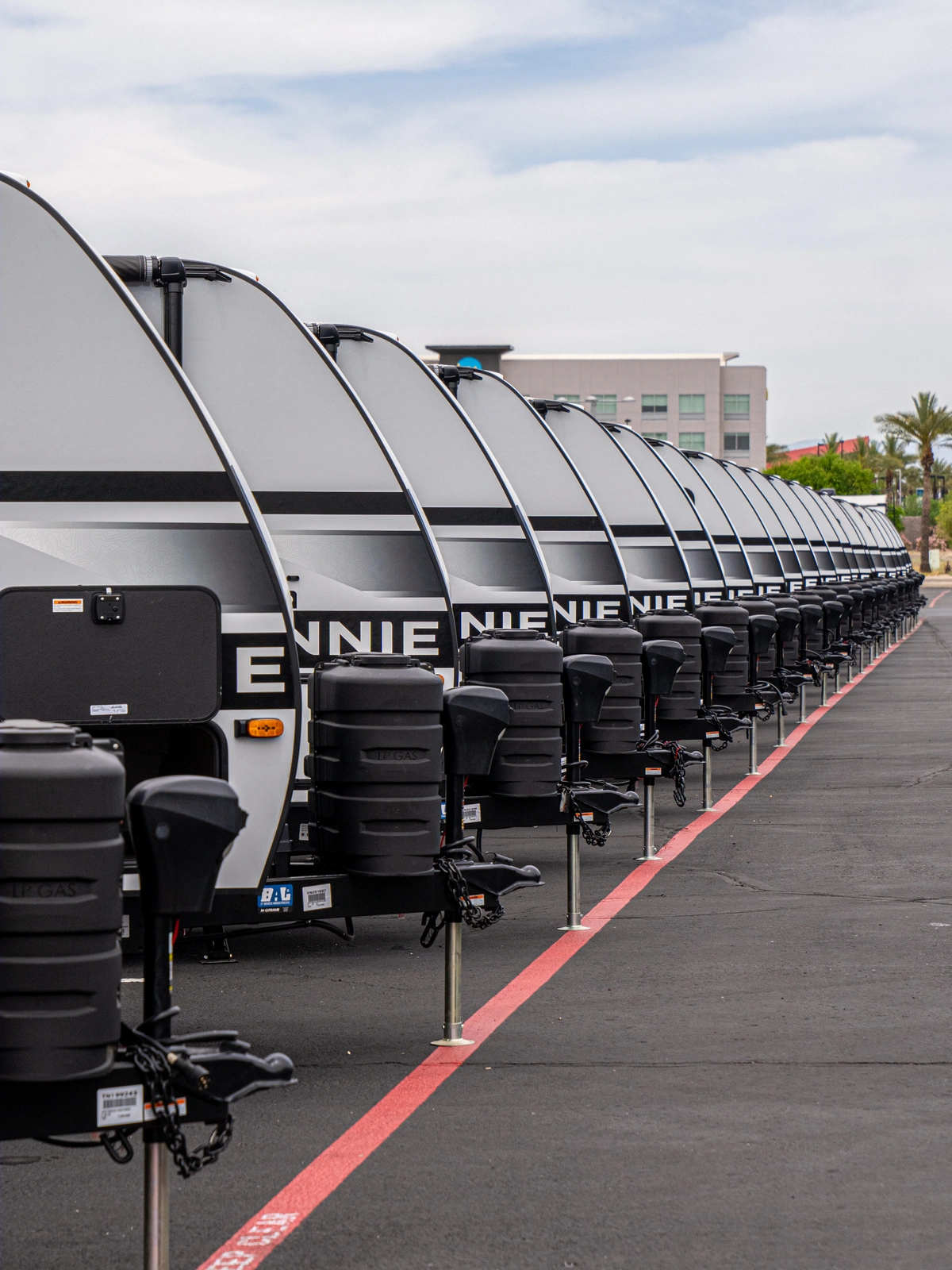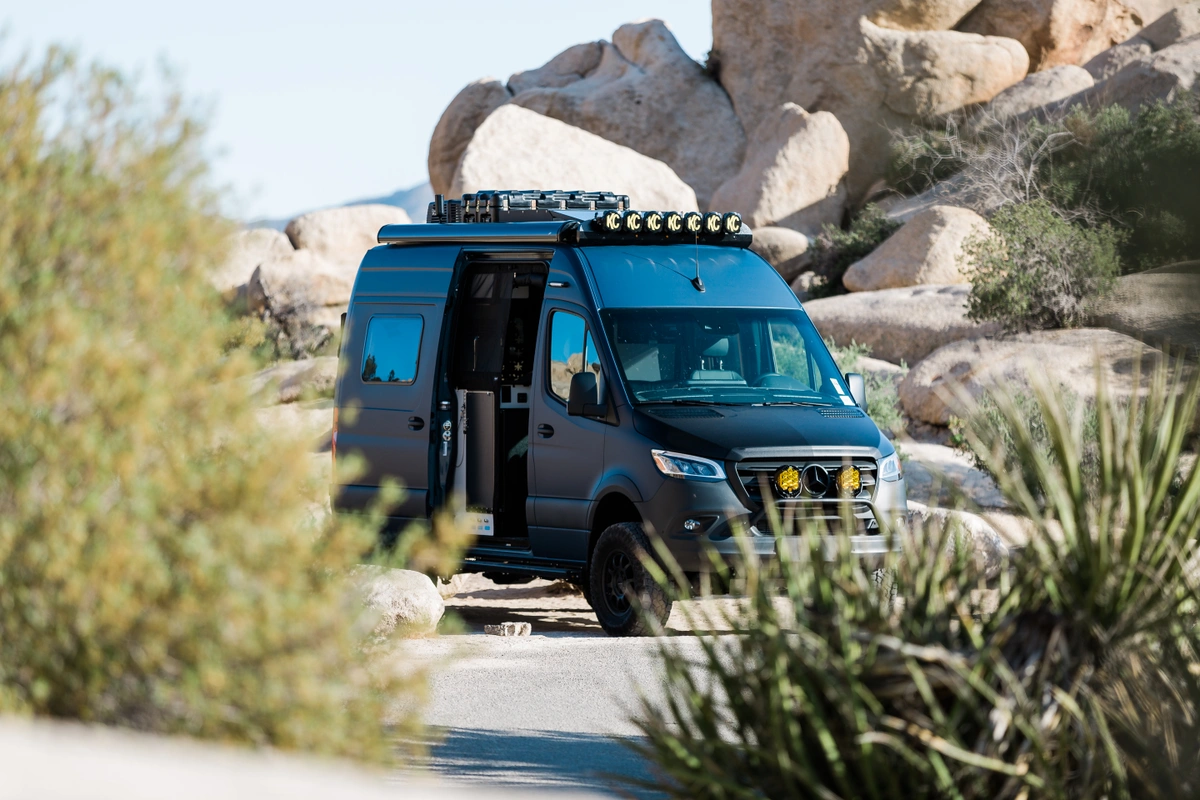We have been a full-time traveling family for 2.5 years and there are two things we are told over and over, which could not be any further from the truth...
- "You are so lucky to be able to do this!"
- "It must be nice to be on year-long vacations!"
Outside of on-going good health, there is no luck in living this lifestyle. It is a hard and exhausting life that requires years of determination and compromises to achieve. When it comes to that second comment, let me use the rest of this article to explain the difference between full-time RVing and vacation RVing. Any of the below applies to travel in general, whether with and without an RV.
Guest Post and Photos by Laura Georgieff
1. Planning
When planning a weekend, week-long, or 2-week RV vacation, you do the planning ahead of time. You start working out an itinerary several weeks or months prior, and by the day you leave, you know which route you will be driving, which campgrounds you will be staying at, you have a daily schedule planned with downtimes, and might have even used your kids' input to schedule a few fun activities.
Planning a vacation is an exciting period of time leading up to Travel Day. It builds up excitement and everyone dreams about what the trip will look and feel like! Those days of research are fun and the anticipation can sometimes be as stimulating as the trip itself!
You might put in as much as 40+ hours planning a week-long trip.
When you travel full-time, planning would simply be too demanding and time consuming if you planned your trip to this amount of detail, you probably wouldn't have the time to actually travel.
Imagine being on that one-week vacation, and spending 40 hours of it planning a vacation week 2 months down the road... that wouldn't work out too well, would it?
While full-time RVing, you have to give up on detail planning. Before you leave, you will come up with a rough itinerary. It can be as vague as: counterclockwise west of the Mississippi, driving as far north as Seattle and south to Big Bend National Park, then back to starting point in 9 months. Or even just: the northeast, with stopovers in D.C. and NYC, and up to Maine and the Canadian Border.
Here is how we created our 13-month itinerary: we grabbed a blank map of the U.S. and added all U.S. National Parks, then figured the most efficient way to jump from one to the next!
When you RV full-time, you have a rough plan in mind, but nothing more, unless it is someone's full-time job to plan. But you will likely be homeschooling children, working a remote job, traveling and visiting every day... and the planning will be left for the 10 to 11PM slot, twice a week.
We never have a precise plan, whatsoever! We book our campgrounds within 24 to 48 hours of arriving, many times, the day of! The only time we ever had to plan was 2 months of summer traveling down the Pacific Coast because campgrounds fill up in the summer, and those days of planning were absolutely miserable. I do not recommend! :)
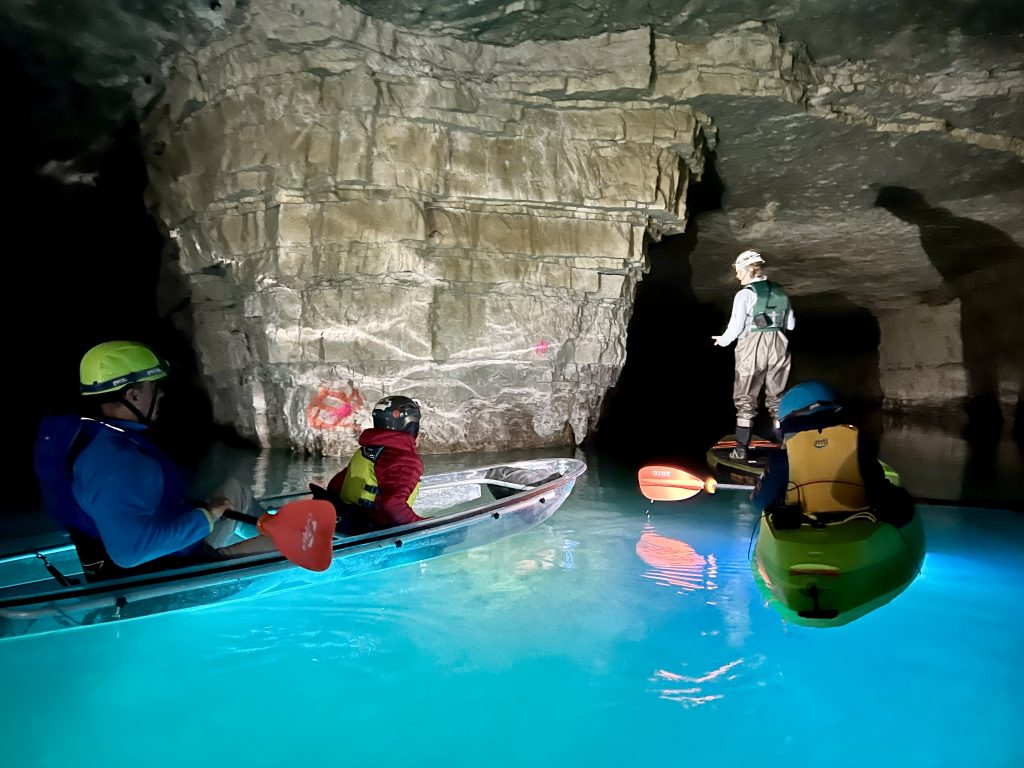
2. Expectations
Expectations is a HUGE thing when you set yourself up for full-time travel. My biggest piece of advice is to expect things to go wrong. While most will likely go really well, when you travel all day every day, things are bound to go wrong here and there. The way you set your expectations will help you best tackle those harder moments.
Your attitude towards adversity will grow the more you travel, but leaving with the expectation that things will go wrong, will save many heartbreaks!
When I leave on a vacation - RV or hotel - my expectations are pretty high! You have been planning your trip for weeks and expect it to go as smoothly as possible. Your schedule is in place, your tours and activities are booked, you know where you are staying and have expectations for each portion of your trip. There is little place for the unknown and you are absolutely right in expecting a well-oiled vacation!
Understanding that full-time RVing is a different experience than vacation RVing will put you in the right mindset and set your expectations up for the challenge.
Remember that full-time RVing is living life with extra challenges. Tax season will remain tax season, schooling is now laying on your shoulders, you need to find a place to spend the night, keep kids happy on trails, and make sure you have enough wifi to get your work done! It is real life in a different location every couple of nights or weeks, which only adds complexity.
But don't you worry, it is MORE than worth it!! That lifestyle, I highly recommend! It is worth all of the pains along the way, just make sure you don't have the expectation that this will be a year-long vacation.
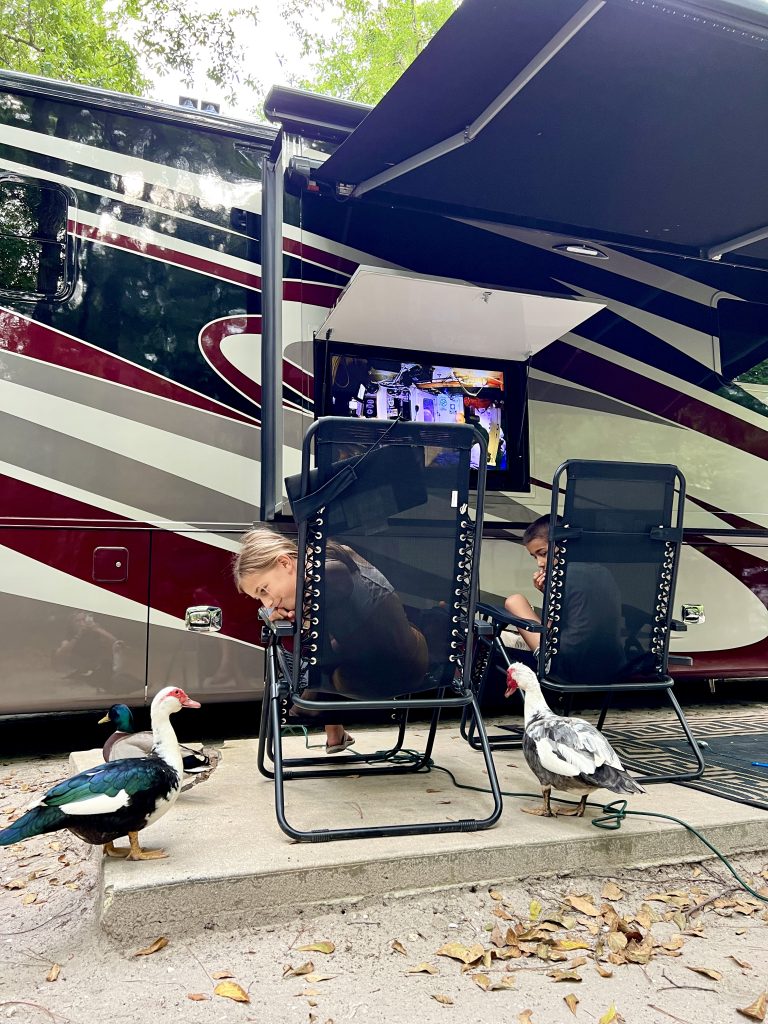
3. Budget
Everyone travels on a different budget, but even so, the daily budget you will attribute to the two weeks of vacation you are granted each year, is bound to be different than your daily budget on the road full-time.
While on an RV Vacation, you have built in a budget for eating out, grilling steak, taking the kids on excursions, and letting them participate in premium campground activities. You have probably also booked nicer campgrounds where you can relax while the kids make friends and are entertained by the campground staff.
Let's look at a vacation day: you may spend $90 on campground fees, $50 on take-out, another $20 in drinks and smore's, $120 in museums visits or lake fun. Your day may cost you $280.
Should you be spending $280 every day of the month, your full-time budget would be over $8,000 per month...
And keep in mind that, when traveling full-time, you are bound to spend more on gas/diesel than on a vacation, where you may book a campground for the week to enjoy a more relaxing time.
A regular full-time RVing family will probably try to keep their monthly budget around $4,000. In order to achieve this, they will choose cheaper campgrounds, the option to cook in their RV, and partake in free activities such as national park visits.
When going on a vacation, it is expected that you will treat yourself. In fact, you should treat yourself! You only have 2 or 3 weeks of vacation each year!
When this becomes your lifestyle, you will live every day a lot more as you do at home, to keep this lifestyle sustainable and going as long as possible!
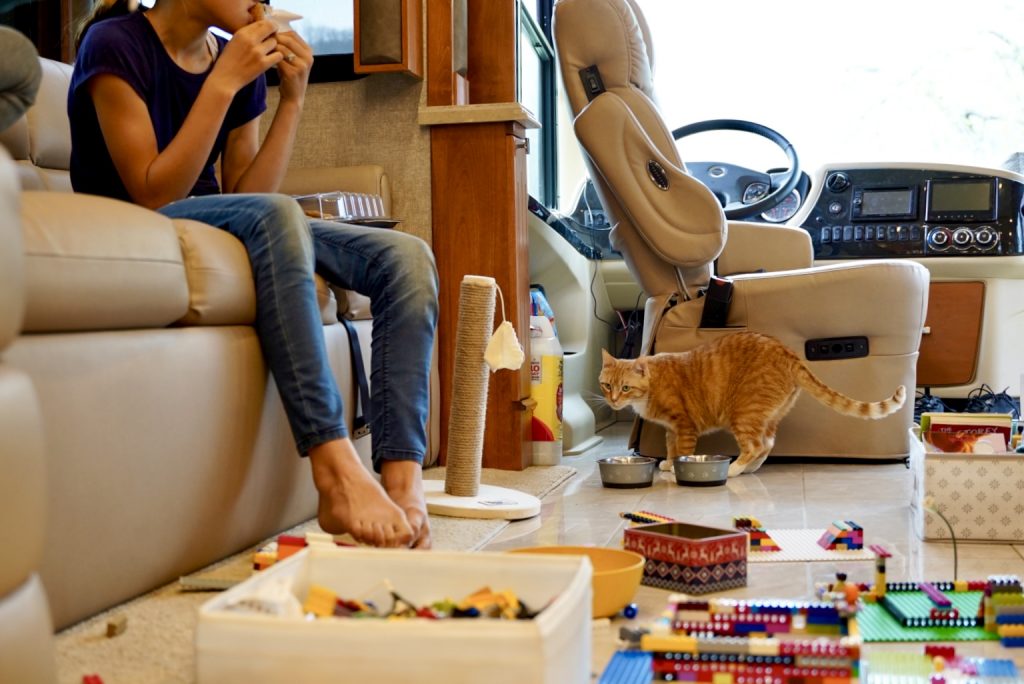
4. Exhaustion
Exhaustion is often overlooked and misunderstood by vacationers thinking we are living on vacation every day of the year...
The full-time traveling lifestyle is absolutely exhausting. The kind of exhaustion that has you walking on a thin line, which only travel excitement can help you balance.
While on vacation, your main purpose is to have fun and rest. Even while on a road trip, the kids are out of school, you are likely not working, and you are out to have a good time, enjoy the family, park the RV and relax after a fun hike during the day.
When full-time RVing, you are juggling many crystal balls. Homeschooling, working, planning, cooking, visiting, social media (for many), driving...
When you finally go to bed, you check out the map one last time and ask your spouse what time s/he wants to hit the road the next day based on his/her work schedule, driving distance, stopovers for visits, and campground check-in times. You finally turn off the lights and drift into deep deep sleep.
You are absolutely exhausted and it is well worth it. The anticipation of the next park, the next state, the next lake, keep you beyond excited. You could never imagine settling back down and having to wait 6 months until your next adventure.
But do not underestimate, or even compare the tiredness level of travel vs. vacation. They are just not comparable...
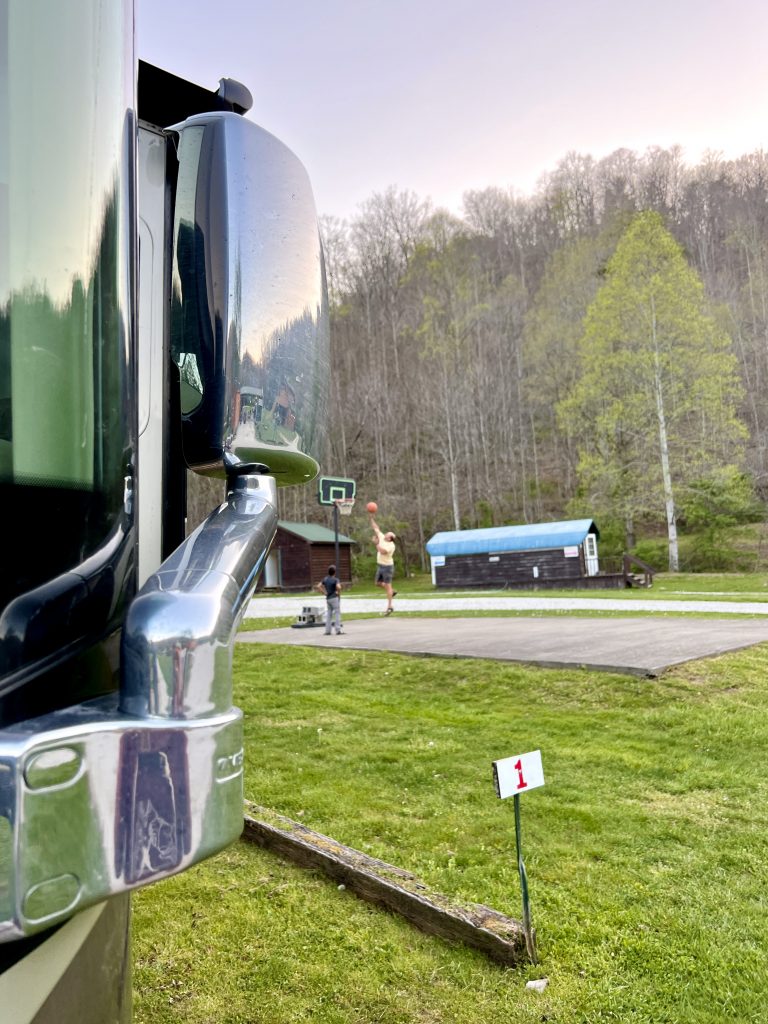
5. Pace
Lastly, the pace of travel between vacationing and traveling can be very different. Now, this one is up to each traveler's preferences. We see many full-timing RV families spending 3 weeks or more at each place. Again, remember that the exhaustion is real and it is very easy to burnout in this lifestyle.
Even families spending more time in each place, find ways to discover something in the area everyday. Only, they don't go home and sit there for the next 6 months until their next trip. They wake up the next day to go out and explore.
Their Google Maps is constantly opened for research. Their browser has open tabs with travel bloggers' recommendations.
Whether your full-time travel pace is quick or slow, it is never-ending, which is the main difference between full-time RVing and vacation RVing.
While on vacation, even if you take thing intensely and travel every day, exploring, hiking, canoeing, visiting cities and museums, etc. there is an end to it. In a week or two, you will be home, resting and returning to your routine.
As full-time family, in a week or two, you'll be in a different location, discovering something new, looking up a new hike, figuring out when you'll be sleeping the next day.
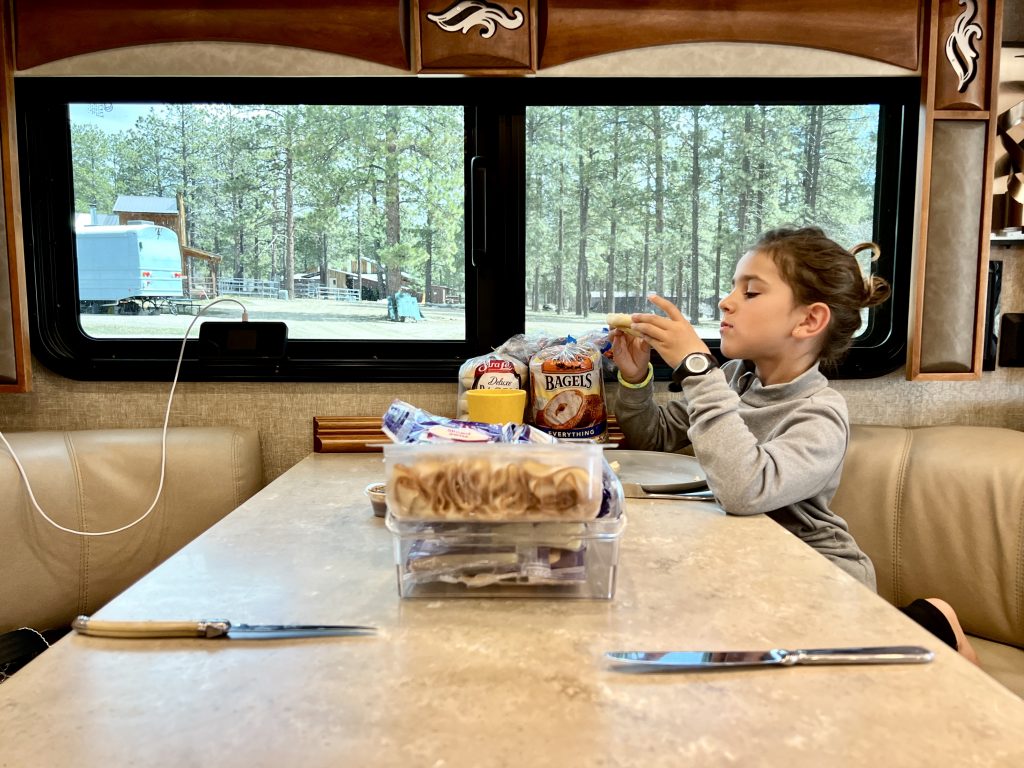
Full-Time RVing vs. RV Vacation
This was a pretty long answer to the way-too-common dreamy-eye comment: "You're on full-time vacation!"
If you are looking into full-time RVing, my number-one tip will be to set your expectations right. Do NOT ever expect this to be a vacation. To be honest with you, we take vacations from full-time travel! Those are weeks where we work less (small business owners are never actually off, are they...), we don't homeschool the kids, we wake up in the morning and head to the beach, then use the pools, and order sushi for dinner.
Full-time RVing is not a full-time vacation, it is a lifestyle that comes with its own challenges, but rewards so invigorating, we may call them addicting!
